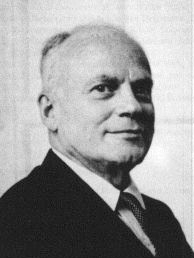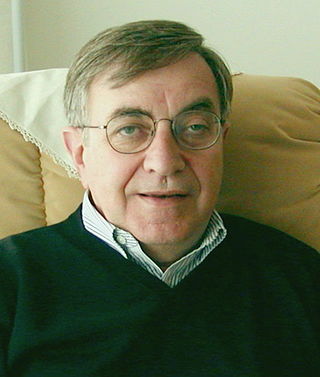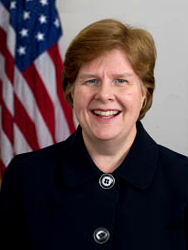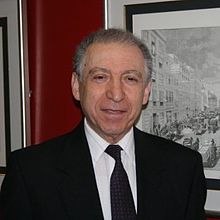
Jacob Viner was a Canadian economist and is considered with Frank Knight and Henry Simons to be one of the "inspiring" mentors of the early Chicago school of economics in the 1930s: he was one of the leading figures of the Chicago faculty. Paul Samuelson named Viner as one of the several "American saints in economics" born after 1860. He was an important figure in the field of political economy.

Jagdish Natwarlal Bhagwati is an Indian-born naturalized American economist and one of the most influential trade theorists of his generation. He is a University Professor of economics and law at Columbia University and a Senior Fellow in International Economics at the Council on Foreign Relations. He has made significant contributions to international trade theory and economic development.

John Rogers Commons was an American institutional economist, Georgist, progressive and labor historian at the University of Wisconsin–Madison.

Omicron Delta Epsilon is an international honor society in the field of economics, formed from the merger of Omicron Delta Gamma and Omicron Chi Epsilon, in 1963. Its board of trustees included well-known economists such as Robert Lucas, Paul Romer, and Robert Solow. ODE is a member of the Association of College Honor Societies; the ACHS indicates that ODE inducts approximately 4,000 collegiate members each year and has more than 100,000 living lifetime members. There are approximately 700 active ODE chapters worldwide. New members consist of undergraduate and graduate students, as well as college and university faculty; the academic achievement required to obtain membership for students can be raised by individual chapters, as well as the ability to run for office or wear honors cords during graduation. It publishes an academic journal entitled The American Economist twice each year.
Benjamin Morton Friedman is an American political economist, who is the William Joseph Maier Professor of Political Economy at Harvard University. He is a member of the Council on Foreign Relations, the Brookings Institute's Panel on Economic Activity, and the editorial board of the Encyclopædia Britannica. He is a recipient of the John R. Commons Award, given by the economics honor society Omicron Delta Epsilon.

Paul Michael Romer is an American economist and policy entrepreneur who is a University Professor in Economics at Boston College. Romer is best known as the former Chief Economist of the World Bank and for co-receiving the 2018 Nobel Memorial Prize in Economic Sciences for his work in endogenous growth theory. He also coined the term "mathiness," which he describes as misuse of mathematics in economic research.
Evsey David Domar was a Russian-American economist, famous as developer of the Harrod–Domar model.
The Allied Social Science Associations (ASSA) is a group of academic and professional organizations that are officially recognized by the American Economic Association (AEA) and are related to the study of social sciences. As of 2007, there are fifty organizations that participate in the annual meetings of the ASSA, including:

Elhanan Helpman is an Israeli economist who is currently the Galen L. Stone Professor of International Trade at Harvard University. He is also a Professor Emeritus at the Eitan Berglas School of Economics at Tel Aviv University. Helpman is among the thirty most cited economists in the world according to IDEAS/RePEc.
Mark Zupan is the President of Alfred University in Alfred, New York.
John Young Campbell is a British-American economist who has served as the Morton L. and Carole S. Olshan Professor of Economics at Harvard University since 1994.
David Charles Colander was an American economist, and the Christian A. Johnson Distinguished Professor of Economics at Middlebury College. He is known for his study of the economics profession itself and socioeconomics. His books The Making of an Economist and its later edition, The Making of an Economist, Redux, have been called "essential reading for prospective graduate students". He has authored over 35 books and 100 articles on a wide variety of subjects. He has expressed interest in complexity economics. His latest work focuses on economic education, complexity, and the methodology appropriate to applied policy economics.

Christina Duckworth Romer is the Class of 1957 Garff B. Wilson Professor of Economics at the University of California, Berkeley and a former chair of the Council of Economic Advisers in the Obama administration. She resigned from her role on the Council of Economic Advisers on September 3, 2010.
Roger "Cliff" Clifton Poole served twice as interim president of The Citadel. His first term was in 1996-1997, his second in 2005-2006. Poole is brevet Major General in the Unorganized Militia of South Carolina (UMSC).
Victor Robert Fuchs was an American health economist. He was known for his 1975 book Who Shall Live?, which detailed the consequences of rising health care costs in the United States.
Robert Eisner was an American author and William R. Kenan professor of economics at Northwestern University. He was recognized throughout the United States for his expertise and knowledge of macroeconomics and the economics of business cycles. He was a regular contributor to the Wall Street Journal, The New York Times, Chicago Tribune, and The Los Angeles Times, primarily covering national economic policy and reform.
Edwin Smith Mills III was an American economist known for his contributions to urban economics. Mills was a long-time faculty member at Johns Hopkins University (1957–1970), Princeton University (1970–1987), and Northwestern University (1987–1996). He was the founding editor of the Journal of Urban Economics. He was also the Editor of the Studies in Urban Economics, Academic Press, 1977-1985; Member, Editorial Board, Journal of the American Real Estate and Urban Economics Association, 1987-1996; Member, Editorial Board, Journal of Real Estate Finance and Economics, 1987-1990 Co-editor, 1991-1996; Member, Editorial Board, Review of Urban and Regional Development Studies, 1987- 1996. Member, Board of Editors, Center for Urban Policy Research, Rutgers University, 1990- 1996. Member, Editorial Board, Journal of Housing Economics, 1990-1996, Member, Illinois Real Estate Journal Editorial Advisory Board, 1999-2001.
Thomas Earl Borcherding was an American economist. His areas of specialization include microeconomics, public choice, property rights, exchange and transaction costs, politics and public choice, sociological economics, and the role of institutions in economic, political, and social choice.

Clair Brown is an American economist who is Professor of Economics and Director of the Center for Work, Technology, and Society at the University of California, Berkeley. Brown is a past Director of the Institute of Industrial Relations (IRLE) at UC Berkeley. Brown has published research on many aspects of how economies function, including high-tech industries, development engineering, the standard of living, wage determination, poverty, and unemployment.
Michael David Bordo is a Canadian and American economist, currently Board of Governors Professor of Economics and Distinguished Professor of Economics at Rutgers University. He is a research associate at the National Bureau of Economic Research as well as a Distinguished Visiting Fellow at the Hoover Institution at Stanford University. He is the third most influential economic historian worldwide according to the RePEc/IDEAS rankings. He was a student of Milton Friedman and has co-authored numerous books and articles with Anna Schwartz.








